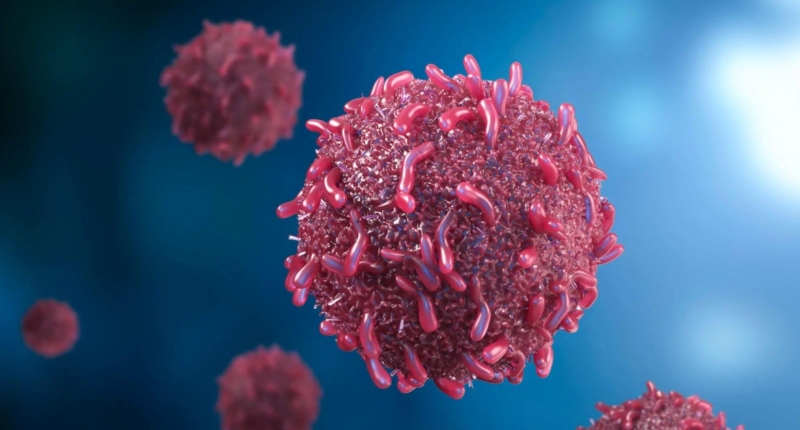Researchers at the Karolinska Institute have discovered that a specific immune cell expressing FPR2 protein hinders the body’s immune response in women with pancreatic cancer, contributing to the disparity between men and women in the efficacy of immunotherapy. The findings of the study, published in Cancer Research, could help develop gender-specific treatments for the disease. While immunotherapy has shown efficacy in treating various cancer types, it exhibits limited efficacy in pancreatic cancer. The study found that the immune cell protecting the tumor and preventing the immune system’s T cells from attacking the cancer cells is absent in men. The next step for the researchers is to follow up on the new immunotherapy target for women and to understand how immunological sex differences drive tumor development in male and female cancer patients. The study was funded by the Swedish Cancer Society, Karolinska Institute (KI Funds), the Centre for Innovative Medicine (CIMED), and the Cancer Research Funds of Radiumhemmet.
Scientists Uncover Potential Explanation for Sex Differences in Pancreatic Cancer.
Pancreatic cancer is a formidable and often aggressive form of cancer that arises in the pancreas. It is particularly challenging to diagnose and treat, as it often goes unnoticed until it reaches advanced stages. Immunotherapy has shown efficacy in treating various cancer types, but it has limited efficacy in pancreatic cancer and exhibits disparities between men and women.
Scientists at the Karolinska Institute have potentially uncovered the reason behind this gender discrepancy. In their study, published in Cancer Research, the researchers identified an immune cell present in women with pancreatic cancer that hinders the body’s immune response. These findings could lead to the development of more tailored, gender-specific treatments.
Gender-based Biological Differences in the Immune System
Previous studies have demonstrated sex-based biological differences in the male and female immune systems. These differences determine how tumors grow and the body’s ability to defend itself against them. The Karolinska Institute’s collaborative study has addressed what might cause such sex-related disparities in the immune response to pancreatic cancer.
The study demonstrated a crucial difference in tumor properties in men and women with pancreatic cancer. In women, there is a type of immune cell that protects the tumor and prevents the immune system’s T cells from infiltrating the tumor and attacking the cancer cells. The researchers found that this immune cell is absent in men, which could explain why men’s immune systems are more effective in combating pancreatic cancer.
Gender-specific Treatments
The study’s findings provide new perspectives that can have a high impact on the treatment of cancer. Fei He, the paper’s first author, notes that more evidence is coming in that male and female hormones affect our immune system. However, much remains to be done before sex can be included as a self-evident biological factor in medical research and therapy.
In recent years, immunotherapy has contributed significantly to the treatment of different kinds of cancer. However, it is much less effective against pancreatic cancer, which remains one of the deadliest kinds of cancer. With the discovery of the immune cell that hinders the body’s immune response in women, gender-specific treatments could be developed to target this cell and improve the efficacy of immunotherapy in treating pancreatic cancer.
Overall, the Karolinska Institute’s study provides essential insights into the sex-based differences in the immune response to pancreatic cancer. The findings could lead to the development of new and more effective treatments that are tailored to each patient’s sex.
Study Finds New Immunotherapy Target for Women with Pancreatic Cancer
A study by researchers at the Karolinska Institute has found that a sub-group of immune cells correlates with poor survival exclusively in female patients with pancreatic cancer. The researchers identified an immune cell expressing a specific protein called FPR2 which can serve as a sex-specific prognostic factor and therapeutic target. The study’s corresponding author and principal investigator, Dhifaf Sarhan, notes that the results can be useful to the development of diagnostic tools and immunotherapy for pancreatic cancer that take into account biological differences between men and women.
The study involved a combination of methods, including single-cell RNA sequencing, proteomics, test tube and patient validation, and treatments of 3D pancreatic cancer models and mice. The researchers’ next step is to follow up on the new immunotherapy target for women and perform extensive analyses to understand how immunological sex differences drive tumor development in male and female cancer patients to develop immunotherapy targets for each group.
The study was funded by the Swedish Cancer Society, Karolinska Institute (KI Funds), the Centre for Innovative Medicine (CIMED), and the Cancer Research Funds of Radiumhemmet. Peter Olofsson‐Sahl works at Pronoxis, which develops antagonists for FPR1 and FPR2. The other researchers report no conflicts of interest.
The study was a result of a close collaboration between Dr. Sarhan’s research group and researchers at Karolinska Institute, Karolinska University Hospital, Pronoxis AB, and Uppsala University in Sweden and universities in Canada, Singapore, and China.
Reference: “FPR2 shapes an immune-excluded pancreatic tumor microenvironment and drives T-cell exhaustion in a sex-dependent manner” by Fei He, Apple H.M. Tay, Ahmed Calandigary, Enana Malki, Sayaka Suzuki, Tianjie Liu, Qi Wang, Carlos Fernández-Moro, Marina Kaisso, Peter Olofsson‐Sahl, Marit Melssen, Siu Kwan Sze, Mikael Björnstedt, Matthias J. Löhr, Mikael C.I. Karlsson, Rainer Heuchel and Dhifaf Sarhan, 15 March 2023, Cancer Research.
DOI: 10.1158/0008-5472.CAN-22-2932
Don’t miss interesting posts on Famousbio










